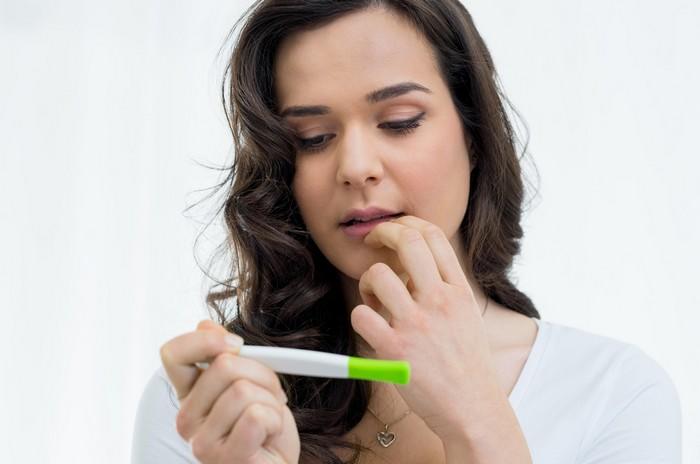Trying to conceive at the age of 40 can present unique challenges. However, many women do successfully conceive and have healthy pregnancies at this stage of life. Understanding the factors that can enhance fertility is crucial. This article will explore various ways to increase your chances of getting pregnant at 40, focusing on lifestyle changes, medical considerations, and emotional well-being.
Understanding Fertility at 40
As women age, their fertility naturally declines. By the age of 40, many women experience a significant decrease in both the quantity and quality of their eggs. This decline can affect the chances of conception and increase the risk of miscarriage. However, it is important to note that while age is a critical factor, many women still have the potential to conceive and carry a pregnancy to term.
Factors Affecting Fertility
Several factors influence fertility, especially as women reach their forties. These factors include hormonal changes, ovulation irregularities, and overall reproductive health. It is essential to understand these factors to better navigate the journey of conception.
Hormonal Changes
Hormonal fluctuations are common as women approach menopause. These changes can affect the menstrual cycle, leading to irregular ovulation. Tracking your menstrual cycle and understanding when you are most fertile can help improve your chances of conception.
Egg Quality
The quality of eggs diminishes with age. Poor egg quality can lead to difficulties in conception and increase the risk of genetic abnormalities. Therefore, focusing on improving overall health can contribute to better egg quality.
Lifestyle Modifications
Making healthy lifestyle choices can significantly impact your fertility. Here are some essential lifestyle changes that can help increase your chances of getting pregnant at 40.
Maintain a Healthy Weight
Your weight can influence your fertility. Being underweight or overweight can affect hormone levels and disrupt ovulation. Aim for a balanced diet that includes fruits, vegetables, whole grains, and lean proteins. Regular exercise can help maintain a healthy weight and improve overall health.
Adopt a Balanced Diet
Nutrition plays a vital role in reproductive health. Incorporate foods rich in antioxidants, vitamins, and minerals into your diet. These nutrients support egg health and improve your chances of conception. Foods high in folate, such as leafy greens, beans, and citrus fruits, are particularly beneficial. Omega-3 fatty acids found in fish can also enhance fertility.
Limit Alcohol and Caffeine
Excessive alcohol and caffeine consumption can adversely affect fertility. Limit alcohol intake to moderate levels and consider reducing caffeine consumption. Studies suggest that high caffeine intake may be linked to fertility issues, so keeping it below 200 mg per day is a good guideline.
Quit Smoking
Smoking is harmful to overall health and significantly impacts fertility. It can damage the ovaries and reduce egg quality. Quitting smoking can improve your chances of conception and lead to a healthier pregnancy.
Understanding Your Cycle
Understanding your menstrual cycle is crucial when trying to conceive. Knowing when you ovulate can help you time intercourse for the best chances of getting pregnant.
Track Your Ovulation
Using ovulation prediction kits, charting your basal body temperature, or monitoring cervical mucus can help you identify your fertile window. This period typically occurs around 14 days before your next menstrual period. Engaging in intercourse during this time increases the likelihood of conception.
Consider Fertility Apps
Various fertility tracking apps can assist you in monitoring your cycle and predicting ovulation. These apps can provide insights into your cycle patterns, helping you identify the most fertile days.
Consult a Healthcare Provider
When trying to conceive at 40, consulting a healthcare provider is essential. A medical professional can provide guidance tailored to your individual health needs.
Preconception Checkup
Schedule a preconception checkup to assess your overall health and fertility. Your doctor may conduct tests to evaluate hormone levels, ovarian reserve, and any underlying medical conditions that could affect fertility.
Discuss Fertility Treatments
If you have been trying to conceive for over six months without success, consider discussing fertility treatments with your healthcare provider. Options may include medications to stimulate ovulation or assisted reproductive technologies, such as in vitro fertilization (IVF).
Explore Genetic Screening
As women age, the risk of genetic abnormalities in pregnancy increases. Genetic screening can provide information about potential risks and help you make informed decisions about family planning.
Emotional Well-Being
Trying to conceive can be an emotional journey, especially as you navigate the challenges of fertility at an older age. Prioritizing emotional health is vital during this time.
Manage Stress
Stress can negatively impact fertility. Consider incorporating relaxation techniques such as yoga, meditation, or deep-breathing exercises into your routine. These practices can help reduce anxiety and create a more positive mindset.
Seek Support
Joining support groups or talking to friends and family about your experiences can provide emotional relief. Sharing your feelings and concerns can help you feel less isolated during your journey to conceive.
Alternative Approaches
Some women explore alternative therapies to enhance fertility. While scientific evidence may vary, these approaches can complement traditional methods.
Acupuncture
Acupuncture has been suggested to improve fertility by promoting blood flow to the reproductive organs and reducing stress. Some women find it beneficial to include acupuncture in their fertility treatment plans.
Herbal Supplements
Certain herbal supplements, such as maca root or vitex (chaste tree), are believed to support reproductive health. However, it is essential to consult with your healthcare provider before taking any supplements, as they may interact with other medications or conditions.
Conclusion
Increasing your chances of getting pregnant at 40 requires a holistic approach that includes lifestyle changes, understanding your cycle, and consulting with healthcare providers. While age may present challenges, many women successfully conceive and have healthy pregnancies. Prioritizing your health, managing stress, and seeking support can enhance your fertility journey. Remember, every woman’s experience is unique, and being informed and proactive is key to achieving your family planning goals.
Related topics:



























